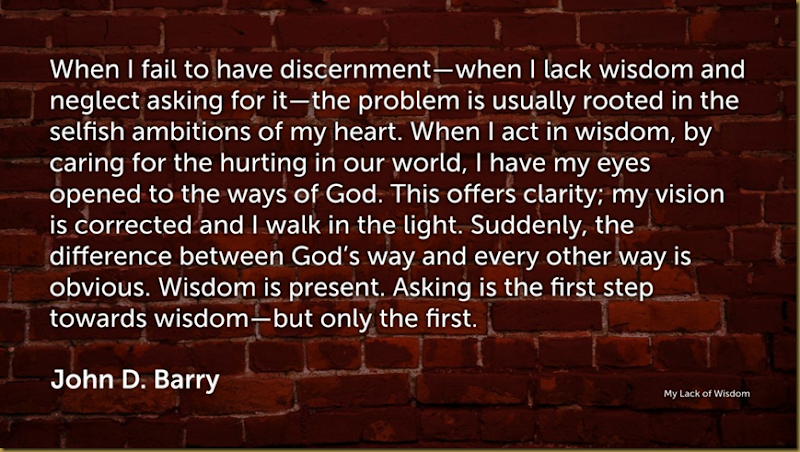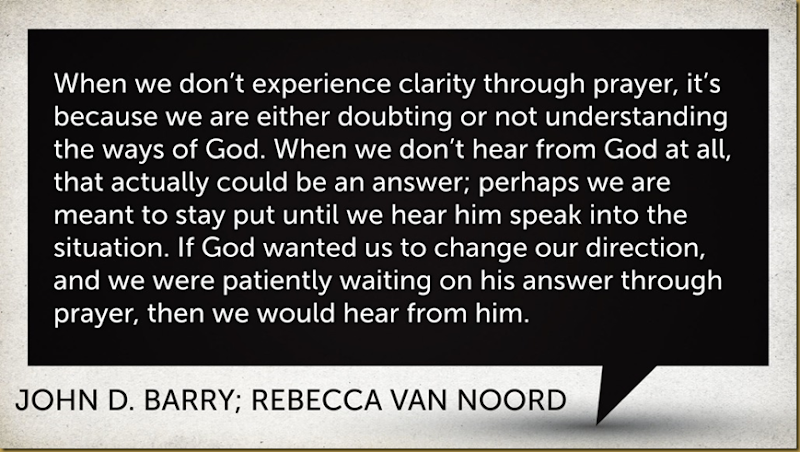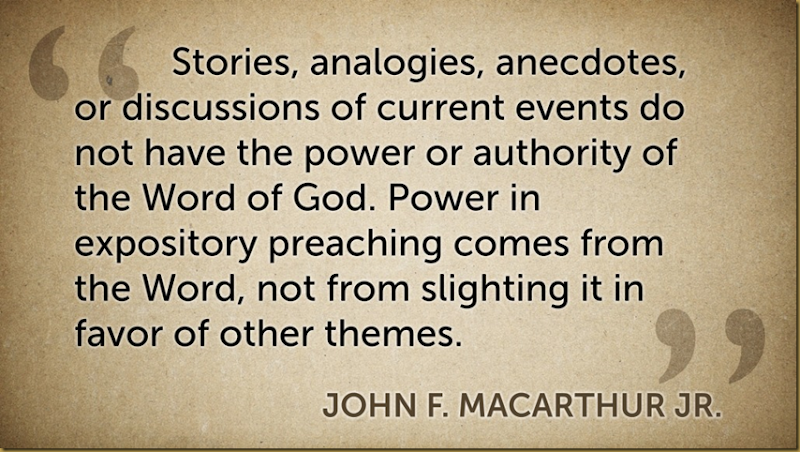James 3:13–15 — Who is a wise man and endued with knowledge among you? let him shew out of a good conversation his works with meekness of wisdom. 14 But if ye have bitter envying and strife in your hearts, glory not, and lie not against the truth. 15 This wisdom descendeth not from above, but is earthly, sensual, devilish.
Here we learn that wisdom is rooted in humility and shown through actions. For James, these actions are obvious: “Pure and undefiled religion in the sight of our God and Father is this: to look after orphans and widows in their affliction, and to keep oneself unstained by the world” (James 1:27).
When I fail to have discernment—when I lack wisdom and neglect asking for it—the problem is usually rooted in the selfish ambitions of my heart. When I act in wisdom, by caring for the hurting in our world, I have my eyes opened to the ways of God. This offers clarity; my vision is corrected and I walk in the light. Suddenly, the difference between God’s way and every other way is obvious. Wisdom is present. Asking is the first step towards wisdom—but only the first.
John D. Barry, “If You Lack Wisdom, Do This,” in Study Like a Pro: Explore Difficult Passages from Every Book of the Bible, ed. John D. Barry and Rebecca Van Noord (Bellingham, WA: Lexham Press, 2014).






